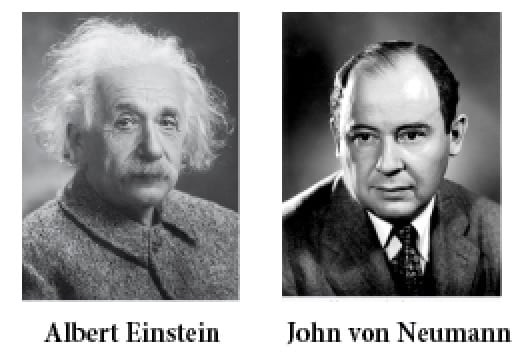
“Genius” is not a range of IQ’s, but rather a measure of achievement, while IQ is a specific measure of performance on a properly supervised set of tests. Geniuses throughout history are generally people of high IQ, but their IQs would fall in a wide range between IQ 125 and IQ 190. Furthermore, many people of IQ 160 or more would not qualify as a genius because nothing in their achievements revealed an original departure from mainstream thinking or talent. For the distinction between high intelligence and genius, visit: How do High Intelligence, Genius, Cleverness and Smartness differ? – Intelligence and IQ. Although there is no precise definition of genius, philosopher, Arther Shopenhauer probably came closest to describing genius in his statement, “Talent hits a target no one else can hit; genius hits a target no one else can see.”
Only a small fraction of highly intelligent people would be considered geniuses, because genius requires, in addition to high intelligence, a high degree of originality and inventiveness that we usually describe as creativity. This creativity, often emerges from an all-consuming passion that enslaves the individual, forcing him or her to submit to its demands, whatever the price. To determine how altering the shape of the eye changes perception, Newton inserted a blunt needle in the soft tissue behind his eyeball. Marie Curie exposed herself to radiation to investigate its properties and died prematurely. Van Gogh cut off his ear and Einstein was somewhat detached from his children. A significant quality that all geniuses share is an unrelenting intensity of purpose that often undermines their personal relationships. We are the beneficiaries of the creations of genius as they contribute to the quality of our lives, but it’s the geniuses, themselves, who make the sacrifices and pay the price.
Many geniuses are driven by a compulsive nature. The project on which they focus often becomes more important than human relationships, proper rest, exercise and relaxation. Their enjoyment in life is hooked to their achievement, so they tend to ride the rollercoaster of highs and lows that accompany their successes and failures. Since happiness is not a steady state of being, it’s probably not possible to place their happiness on a scale relative to others. However, their highs may be higher than those of most people and their lows, much lower. They probably have fewer days of quiet contentment, because they are constantly in pursuit of the next dopamine fix that comes with each success. When Einstein was asked whether he believed in an afterlife, he responded, “No, I’ve had one life and I don’t need another.” This does not sound like a man who was so happy that he wanted to live forever. Of course there are some exceptions. Richard Feynman seemed to maintain a level of cheerfulness throughout his life and probably had more joyous moments than most, while enslaved by his need for those Eureka! moments.
1 view
